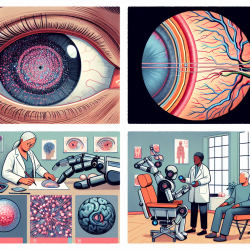At TinyEYE, we are committed to providing exceptional online therapy services to schools, and continuous improvement is at the heart of our mission. One area that has garnered significant attention is the role of gender in shaping professional practices, particularly in high-stakes environments like law enforcement. A recent study titled "The Role of Gender in the Health and Human Rights Practices of Police" offers insights that can be invaluable for practitioners looking to enhance their skills and approach.
This study, conducted in Tijuana, Mexico, explored gender differences in syringe confiscation and syringe-related arrest behaviors among municipal police officers. The findings revealed that female officers were significantly less likely to confiscate syringes or arrest individuals for syringe possession compared to their male counterparts. These behaviors have profound implications for public health and human rights, as aggressive policing practices can exacerbate health risks among vulnerable populations, such as people who inject drugs (PWID).
For online therapists, especially those working in special education, the lessons from this study can be transformative. Here are some key takeaways:
- Empathy and Human Rights: Female officers' approach aligns more closely with harm reduction and human rights principles. Online therapists can adopt similar empathetic and rights-focused approaches when dealing with students and clients, ensuring that their practices promote well-being and dignity.
- Training and Knowledge: The study found that female officers had higher proficiency in certain knowledge areas related to occupational safety. Continuous training and staying updated with the latest research can empower therapists to offer the best care possible.
- Self-Efficacy and Confidence: Despite lower self-reported confidence in managing needlestick injuries, female officers exhibited safer policing behaviors. Online therapists should focus on building their confidence through practice and support while adhering to best practices.
- Collaboration and Support: The study highlighted the importance of a supportive work environment. Therapists should seek collaborative opportunities and support systems to enhance their professional practice.
Encouraging further research in this area can also lead to more refined and effective interventions. By understanding the nuanced ways gender influences professional behavior, we can develop strategies that not only improve individual practices but also contribute to broader systemic changes.
To read the original research paper, please follow this link: The Role of Gender in the Health and Human Rights Practices of Police.










